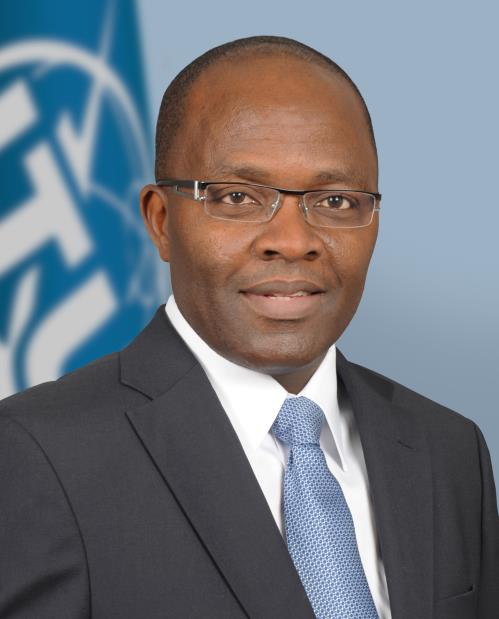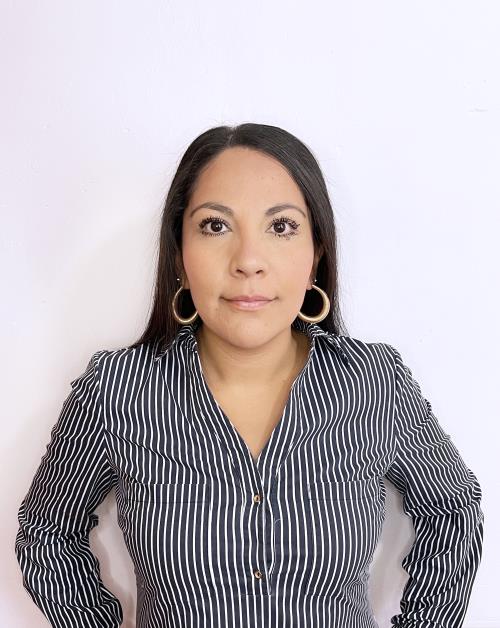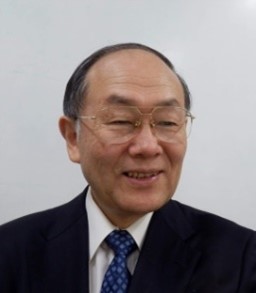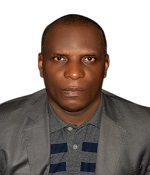ITU Members driving ICT/digital accessibility to build a digitally inclusive world for all
ITU-D Study Groups Question 7/1 Management Team
Session 472
This WSIS 2023 session is organized by ITU members and led by the management team of the ITU Development Bureau Study Group 1 on Question 7, who work on the topic of Telecommunication /ICT accessibility to enable inclusive communication for all, especially for persons with disabilities and persons with specific needs.
The session will aim to highlight the importance of ensuring that ICT accessibility is a top priority among governments’ agendas and to call on global policies and decision-makers to guarantee that the digital transformation process is inclusive, and thus, no one is left behind in the digital age.
Within digital societies and environments, ICTs are critical enablers to exercise all people's right to communicate, communication being one of the fundamental human rights. The Charter of Human Rights re-emphasizes that human rights apply online as they do offline. The exponential rise of ICTs and their presence in almost every aspect of life increases as never before the challenge of policy and decision-makers to bridge equally and equitably the digital divide. In line with ITU, UN, the SDGs and other global related mandates such as the Convention of the Rights of Persons with Disabilities, ratified by 185 of the 193 UN Member States, emphasize the importance of ICT/digital accessibility for people with disabilities and calls to ensure that technology is human-centered as well as universally designed, developed and delivered. These considerations will lead towards the achievement of the ultimate overarching goal of digital inclusion by all global policy and decision makers, thus aiming, through the use of ICTs, to empower and improve the lives of all people and make the world a better place.
To contribute towards the implementation of this goal, within the ITU-D Study Group 1, ITU members work since WTDC 2006 to strengthen knowledge, formulate and implement policies and strategies, and raise awareness on why and how to promote ICT/ accessibility as a critical enabler for socio-economic development. ITU members also work to ensure that ICTs are available, affordable, and accessible to everyone, which means designed, developed, and delivered considering everyone’s abilities and needs to receive, understand, and use the information and be able to communicate.
The Kigali Action Plan and ITU strategic plan, jointly with WTDC 2022 and the Plenipotentiary Conference 2022’s resolutions reiterate the importance to guarantee that the digital transformation agenda is inclusive for all people, without any discrimination of age, gender, and ability to use the technology, level of education or geographical location. Common efforts are employed by ITU members and all involved stakeholders towards insuring an inclusive digital transformation in which all people are equally and equitably empowered through ICTs to be digitally included and active contributors within digital societies, economies, and environments. To reach this target implementation of ICT/digital accessibility policies and strategies and its mainstreaming across all sectors and activities in which the use of technology is intended for all end-users is key.
EXPECTED OUTCOMES: This interactive ITU members’ dialogue aims at raising awareness, strengthening knowledge, and incentivizing engagement of global leaders, policy, and decision-makers to mainstream ICT/ digital accessibility policies and strategies as the universal design of technology across all sectors, by highlighting the key areas and related socio-economic impact that this mainstreaming implementation generates, including the achievement of :
-Digital Inclusion: Equality and Equity: Mainstreaming ICT/digital accessibility is crucial for promoting digital inclusion concerning both equality and equity perspective and thus, ensure that all citizens, irrespective of their gender, age, ability, or literacy level, can participate in digital societies, economies, and environments. By proactively addressing ICT/digital accessibility governments and policymakers can foster equal and equitable opportunities and reduce disparities among different groups to bridge the digital divide for all;
- Social Cohesion and Empowerment: Inclusive ICT/digital accessibility enables social cohesion by connecting people, encouraging communication, and enabling access to essential e-government services. In some regions of the world, accessibility has become compulsory by law (e.g. European Accessibility Act and Directives). This is because when everyone can access digital information products and services, they are empowered to make informed decisions, access education, and healthcare resources, and engage in the democratic process, leading to stronger communities and societies. Moreover, by mainstreaming digital accessibility, governments, and policymakers fulfill their legal obligations and uphold the human rights of all citizens, ensuring that everyone can fully participate in the digital world;
-Global Economic Growth and Development: Ensuring ICT/digital accessibility for all citizens, including those with specific needs, contributes to economic growth by allowing everyone to access information, services, and opportunities in the digital sphere. This not only increases productivity but also drives innovation, as diverse groups of people can collaborate and contribute to the digital economy. As a result, the overall economic development of countries, regions, and globally is enhanced.
Finally, ITU-D will consider the conclusion of this interactive dialogue session within the development of a specific resource aimed to support ITU members’ efforts in mainstream ICT/digital accessibility across key areas and socio-economic sectors in their countries and regions.

With more than 30 years in telecommunications, including over 20 years in ITU's Development Sector, Dr Zavazava has promoted and implemented impactful information and communication technology projects around the world.
Prior to his election as BDT Director, he served as ITU's Chief of Partnerships for Digital Development, overseeing development-related projects, strategic partnerships, and resource mobilization between 2019 and 2022, while launching new initiatives that have boosted the engagement of industry, private-sector, and academia members in ITU's work.
Earlier, Dr Zavazava headed the Republic of Zimbabwe's Government Telecommunications Agency and served as a senior diplomat. He also taught MBA classes at the UK's Nottingham Trent University.
Dr Zavazava holds a PhD in Multilateral Trade from Business School Lausanne (Switzerland), and a Master of Laws degree in Telecommunications and Information Technology from the University of Strathclyde (UK), as well as a Master's in International Relations from Webster University (US), and an MBA from the University of Zimbabwe. He also holds a Bachelor's in Business Administration and diplomas in Telecommunications and Systems Engineering.

Ms. Amela Odobašić is the Director of Broadcasting at the Communications Regulatory Agency of Bosnia and Herzegovina. Ms. Odobasic also works as a communications, regulations, and media development specialist. Her work included projects throughout the Western Balkans countries as well as Iraq, Afghanistan, Somalia, and Kenya. Ms. Odobasic acts as Co-Rapporteur of Study Group 1 Question 7 “Telecommunication/ICT accessibility to enable inclusive communication, especially for persons with disabilities” at the International Telecommunications Union for the period 2022-2025. Ms. Odobasic is a fervent advocate for the promotion and protection of fundamental human rights – access to information and freedom of expression.

Ms. Ileana GAMA BENÍTEZ has over thirteen years of career at the Federal Institute of Telecommunications and is the Director of Information and Accessibility, where she participates in the preparation of legal provisions aimed at protecting the rights of users of telecommunications services, specifically users with disabilities, highlighting the preparation of "General Accessibility Guidelines for Persons with Disabilities".
Ms. GAMA BENÍTEZ actively collaborated in the most important projects that the Institute has implemented in favor of inclusive communication and accessibility for users with disabilities, such as the issuance of the Catalog of Accessible Mobile Devices, the provision of training courses for people with disabilities regarding the use of computers, cell phones and tablets and the development of dissemination and information campaigns aimed at users with disabilities.
Ms. GAMA BENÍTEZ has a Law Degree from the National Autonomous University of Mexico and a Master's Degree in Administrative Law from the Pan-American University.

Ms. Jun is currently Policy Advisor of the International Cooperation Research Division at the Korea Information Society Development Institute (KISDI). She holds a master's degree in Global Business Management. She has over 10 years of experience on international telecommunications policy issues including within the work of the International Telecommunication Union (ITU) and the Asia Pacific Telecommunity (APT). She is the Chair of the Working Group of Management Committee on APT Legal Instruments and served as a Chair and Vice-Chair many times for many work programs of APT, including the Preparatory Groups for ITU major events.
Ms. Jun is Vice Chairman of ITU-D SG 2, and she also covers ICT accessibility issues as a Co-Rapporteur of ITU-D SG 1 Q7/1 dealing with ICT accessibility for inclusive communication. Ms. Jun has been participating in the activities of the ITU since 2013, and strives to increase the participation of domestic sector members and academia in ITU activities and women's participation in ITU activities. Ms. Jun was also leading the Working Group of the Plenary meetings as a Chairman at the 2022 World Telecommunication Development Conference (WTDC) and served as a Chairman of Committee 5, on ITU's policy and legal issues at the 2022 Plenipotentiary Conference (PP).

Dr Eng. Mitsuji Matsumoto is Prof. Emeritus, at the Research Institute for Science and Engineering, Waseda University, Japan. He had PhD for Engineering from Waseda University. His research interests include Multimedia communication, Optical wireless communication. He is leading the ICT Digital Accessibility Initiatives in Japan. Since1980 he has actively promoted the Telecommunication Standardization work in ICT accessibility including the development of ITU Rec.T.90, F.790 (Accessibility guideline), as well as raising awareness and supporting implementation of ICT accessibility activities within the Development Bureau in his capacity as Vice-Rapporteur of the ITU-D SGQ7/1 on ICT accessibility for Inclusive communication. He is also representing Waseda University, Japan within the ITU Academia members and is an IEEE Life Senior Member.

Prof. George Anthony GIANNOUMIS is Chair of the Board, for Inclusive Creation based in Oslo Norway and serves as Vice-Chair of Study Group 1 on behalf of the Norwegian Telecommunications Authority (Nkom).
He was for many years Vice-Rapporteur of Study Group 1 Question 7 advocating for ICT accessibility as the universal design in the use of technology for all people. Mr. GIANNOUMIS is an action researcher that focuses on technology policy and practice. He is an internationally recognized expert in the universal design of information and communication technology (ICT) and conducts state-of-the-art research on implementing universal design principles in practice. He leads several large-scale research and innovation projects based in over 27 countries. He maintains several international appointments including at the Harvard Law School Project on Disability at Harvard Law School, the Burton Blatt Institute at Syracuse University, the Department of Science and Informatics at the University of Eduardo Mondlane, and the Department of Education at Roma Tre University.

M. Severin GRAGBA, is Vice-Rapporteur of Question 7/1 on the theme of Accessibility of telecommunications/ICTs to enable inclusive communication for all, in particular for persons with disabilities and persons with special needs of ITU-D Study Group 1. He is also Coordinator of the E-HANDICAP Programme at the Ministry of Communication and Digital Economy in the Republic of Côte d'Ivoire. He is an advocate for the accessibility of people with disabilities to and through telecommunications/ICTs. He has worked on different fields of implementation of accessibility such as the elaboration of strategic projects (e-Gouv, e-education, e-agriculture, ICT master plan, National Digital Strategy of Côte d'Ivoire) and policies in Côte d'Ivoire, in Africa and outside Africa. He was a member of the scientific committee of the 27th Universal Postal Congress held from 9 to 27 August 2021 in Abidjan, Côte d'Ivoire. He is himself a person with a disability since the age of 3. He is a member of the committee of experts that developed the ICT accessibility policy in the ECOWAS region (West Africa). Severin GRAGBA has more than 18 years of practical experience in Côte d'Ivoire.
Français
M. Severin GRAGBA, Vice-Rapporteur de la question 7/1 qui travaille sur le thème de l'accessibilité des télécommunications / TIC pour permettre une communication inclusive pour tous, en particulier pour personnes en situation de handicap et personnes ayant des besoins spécifiques de la commission d’étude 1 de l’UIT-D. Il est aussi Coordonnateur du Programme E-HANDICAP au Ministère de la Communication et de l'Economie Numérique en République de Côte d'Ivoire. Il est défenseur de l’accessibilité des personnes en situation de handicap aux télécommunications/TIC et à travers les télécommunications/TIC. Il a travaillé sur différents champs de mise de mise en œuvre de l’accessibilité comme l’élaboration des projets stratégiques (schémas directeurs e-Gouv, e-éducation, e-agriculture, schéma directeur des TIC, Stratégie Nationale du Numérique de la Côte d’Ivoire) et politiques en Côte d’Ivoire, en Afrique et hors Afrique. Il a été membre du comité scientifique du 27e Congrès postal universel s’est tenu du 9 au 27 août 2021 à Abidjan, Côte d'Ivoire. Il est lui-même une personne en situation de handicap depuis l’âge de 3 ans. Membre du comité d'experts qui a élaboré la politique d'accessibilité des TIC dans la région CEDEAO (Afrique de l'Ouest). Severin GRAGBA a plus 18 ans d'expérience pratique en Côte d'Ivoire.
-
 C1. The role of governments and all stakeholders in the promotion of ICTs for development
C1. The role of governments and all stakeholders in the promotion of ICTs for development
-
 C3. Access to information and knowledge
C3. Access to information and knowledge
-
 C4. Capacity building
C4. Capacity building
-
 C7. ICT applications: benefits in all aspects of life — E-government
C7. ICT applications: benefits in all aspects of life — E-government
-
 C11. International and regional cooperation
C11. International and regional cooperation
ICT accessibility is a pre-requisite within the digital inclusion work to ensure that all people can have equal and equitable access to education, job opportunities and digital products and services and applications.
-
 Goal 8: Promote inclusive and sustainable economic growth, employment and decent work for all
Goal 8: Promote inclusive and sustainable economic growth, employment and decent work for all
-
 Goal 10: Reduce inequality within and among countries
Goal 10: Reduce inequality within and among countries
-
 Goal 11: Make cities inclusive, safe, resilient and sustainable
Goal 11: Make cities inclusive, safe, resilient and sustainable
-
 Goal 17: Revitalize the global partnership for sustainable development
Goal 17: Revitalize the global partnership for sustainable development
The implementation of ICT and digital accessibility is crucial within the context of the Sustainable Development Goals (SDGs) in order to guarantee equal and equitable participation in the digital realm for all individuals. This ensures that online human rights are upheld to the same standard as offline rights, fostering an inclusive and fair digital environment for all people.
ITU-D website : https://www.itu.int/en/ITU-D/Digital-Inclusion/Pages/ICT-digital-accessibility/default.aspx
ITU-D Study Groups Question 7/1: Telecommunication/ICT accessibility to enable inclusive communication, especially for persons with disabilities website: https://www.itu.int/en/ITU-D/Study-Groups/2022-2025/Pages/reference/SG1/questions/Question-7-1.aspx

